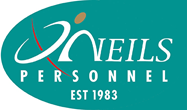New year, new job, new you
By Annette Sleep – Managing Director of O’Neils Personnel.
The New Year for recruiters starts November the year before. That’s because many managers start looking for their New Year hires before they go away for their Xmas holidays.
For more junior roles, November is a great time to hunt for staff as many tertiary students are finishing their courses, and candidates generally (at all levels) seem to look to the New Year as a time of change, particularly if they are not happy in their job.
There are many reasons why people might be unhappy in their job. In my opinion, the most depressing one is having to do a job you dislike because you don’t have the skills to do the job you really want to do. The answer to that is easy enough – go online and find a recognised night school offering the courses you need to pursue a more meaningful job. That way you earn while you learn.
So now we come to the ‘new you’ part. Over the years I have interviewed countless candidates (of all ages and levels) who have invested in themselves – by completing further study – to find themselves in the galling situation of not being able to find a job suited to their qualifications.
They have applied for numerous roles without success – even offered to work for nothing to gain work experience – but with still no success. So what can they do?
Be open to constant learning and personal development, and take any opportunity that comes your way to learn more
Finding the ‘new you’
Here are some useful points to find the ‘new you’ – some of these may apply to your own situation.
1. Don’t assume there will be someone to teach you the job
In the first instance, and well before you apply for a role, read the job ad carefully. Highlight the skills sought that you can deliver now. Never apply for a role on the basis of ‘I’ve never really done this job before, but I learn quickly’. This statement assumes there is actually someone in the business who has the time to teach you the job.
More often than not, training resources are minimal, and employers seek candidates with existing skills and knowledge of the role. If you want to get the job, make sure you are able to complete a minimum of 80% of the duties stated. Anything less than 80% means the learning curve is too steep and the chances of you crashing (should you get the job) rise exponentially.
2. Make sure the details in your CV reflect what the ad asks for
Once you’ve found a suitable job ad, the next step is ensure your CV reflects as many of the skills/ experience stated in the ad that you can deliver. I have heard many candidates complain that they apply for roles they know they have the skills and qualifications asked for, but still don’t get an interview. Invariably when I read over their CV, their key skills and attributes are not mentioned and their relevant industry experience is not stated.
Just because you know you can do the job, don’t assume the employer will know this when they read your CV.
If you don’t write it down, the employer will not know – and you will not get an interview.
3. Ensure you have specific examples of achievements ready when attending an interview
When you are invited for an interview, as well as ensuring you meet all the standard points of appropriate attire and punctuality, you should mentally prepare yourself with specific examples of your work achievements to date.
Many candidates are caught out by this type of experience-based questioning. Employers are normally put off when a candidate struggles to think of a contribution they’ve made to a previous employer which showcases their work ethic.
If you know you have a less than satisfactory work history, my best advice is to develop a more productive work ethic and focus on how you can add value to your employer.
4. Remain flexible in your attitude to the workplace
The rate of change in the business marketplace is exciting, dynamic and at times a little frightening. There are no sure-fire ways to win though the complexities of change.
There are, however, a couple of touchstones that never change. Be open to constant learning and personal development. Take any opportunity that comes your way to learn more. Exercise your brain – develop your problem-solving skills. Look at the work you are doing now and think about how you can do it better.
Then it really will be new year, new job, new you.
PDF version of this article as published in FTD Supply Chain magazine here.




Comments are closed.